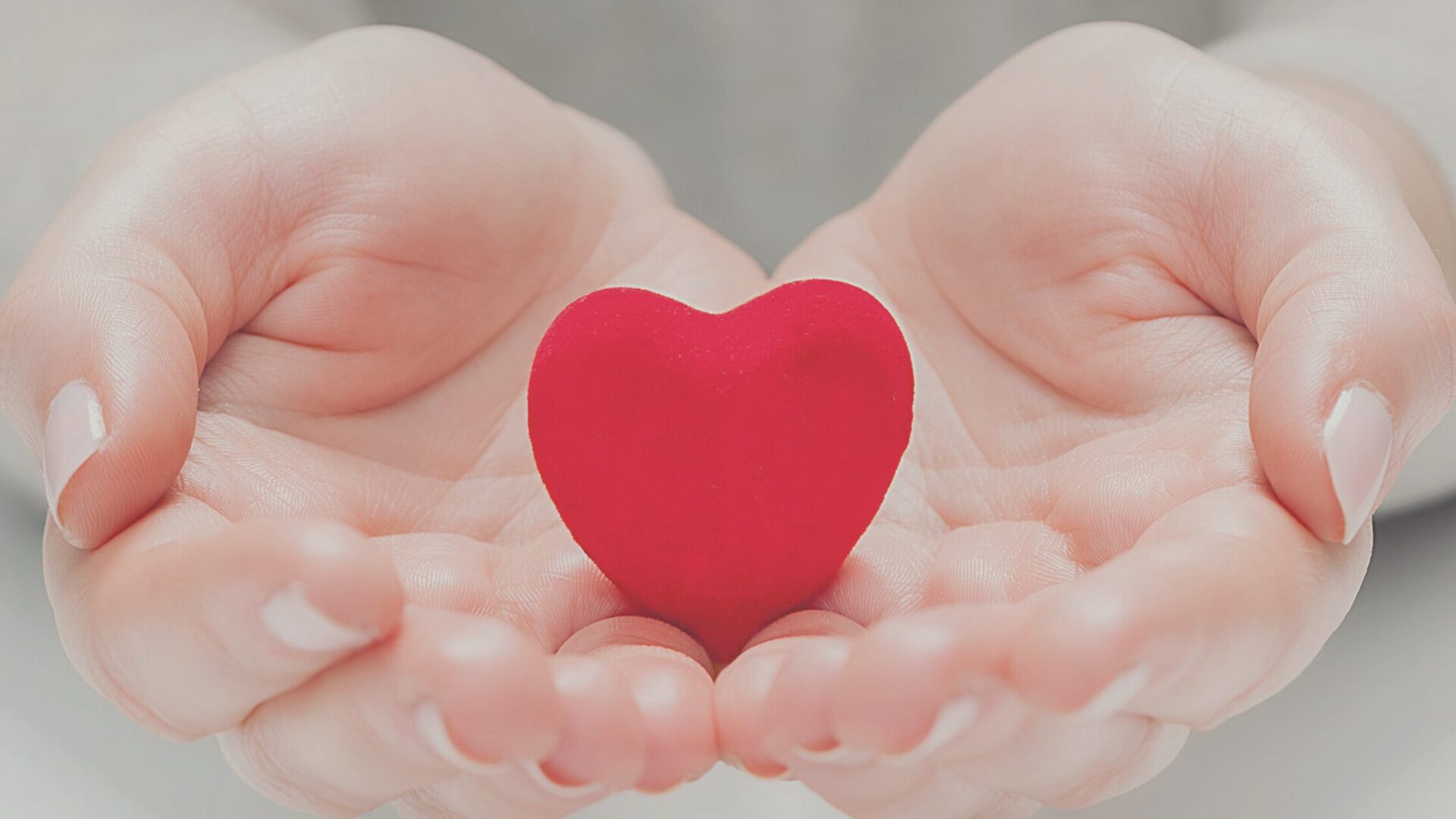Valentine’s day is a special celebration for love, romantic love in particular. We still live in a society where romantic love is prioritized as an essential part of a happy life. So much so that even if we are successful in other areas of life, we feel like a failure if we don’t succeed in romantic love. Valentine’s day reminds us of that.
In a society where patriarchal rules dictate who and how we love, love has been a political and ideological battlefield. Women have been fighting for autonomy and freedom in marriage. Men and women have been fighting for the right to love and marry someone of the same sex. Though we have seen some progress, there are still people who can’t love the way that they want to in this world.
On this Valentine’s day, I want to celebrate all kinds of love as a political statement.
We are all fighting in love
Love takes many forms. Each person has their own unique way of loving.
Yet, for the past centuries, only the love between a man and a woman has been an acceptable and official form of love. Love union was made for the sole purpose of raising children. Women have been providing unpaid household work and until recently we didn’t have any rights to property or to open a bank account.
We now have more rights in some of the countries, but we still need to fight if we don’t agree with this narrow form of love.
Fighting for equality in heterosexual love
As the 1960-70s feminist slogan says, “the personal is political,” heterosexual love has been a battlefield for women to claim equality. It is still the case that women spend more hours doing housework than men, making it difficult to pursue their career. When women earn less than men, it makes us vulnerable. We sometimes have no choice but to stay with an abusive partner, because of gender inequality. Women keep fighting for a more equal relationship every single day.
Fighting for legitimacy in homosexual love
For the past few centuries, longer in the Western cultures, love between same-sex partners has been forbidden and was even punishable by law. There are only 38 countries that legalized same-sex marriage today. In Japan, we still don’t have the right to marry someone of the same sex. Men, women, non-binary people are fighting so that their love can be as legitimate as the love between two people of opposite sex.
Fighting for empowerment in non-romantic love
We live in a society where romantic relationships are over-praised and prioritized. If we spend too much time with our friends, we are told to grow up and spend more time finding real love. But things are starting to change. Some people plan a future in the company of friends, instead of a romantic partner. Even people who are in a romantic relationship, they also make sure that their non-romantic relationships are as important as the romantic one. As Alice Raybaud says, prioritizing friendships and other non-romantic relationships is not only a personal choice, but also a political statement (Raybaud 2024: 14) To fight the patriarchal oppression, friendship can empower us and make us stronger.
Fighting for peace and wellness in self-love
Being single is characterized as sad and depressing in many societies. We have repeatedly seen the images of single women desperately looking for a romantic love in movies and in TV shows. Lately, the image towards single women started to shift. On social media, women are showing how they chose to stay single and enjoying it. Sick of men’s inconsistent and disrespectful behavior in romantic relationships, we prioritize our peace and wellness over settling for a partner who makes our lives miserable. Few decades ago, it was difficult for women to find happiness without marrying a man, despite how abusive this man is. We now have more rights and ability to work to make a living on our own. It is nice to know that we don’t have to settle and ask for a higher standard in our partner.
Celebrating all forms of love
Instead of focusing on the narrow notion of love, I want to open my possibilities to other forms of love and celebrate them just as importantly as romantic love. As I research what love is and its definition, I realize that there are many definitions of love that philosophers have been arguing about. Each description perfectly characterizes a certain aspect of love, though they don’t capture the entire essence of love.
I believe that one true definition of love doesn’t exist. Instead, we each experience love in different ways.
Love as Union of We
Romantic love is often identified as two people uniting into one, creating an union of “we.” By uniting, each person’s interests merge into unified interests. In this form of love, individual identity becomes shared “we” identity. This aspect is useful when building a family and raising children, where it’s important to work as a team.
On the other hand, the “we” identity in love can cause many issues. Take the feeling of jealousy, for instance. The “we” identity makes us feel jealous, which may potentially destroy our relationship. (Grahle in McKeever and Saunders 2022: 179-197). When we create the “we” identity in love, we feel like the other person is in our possession. By ownership, we gain the freedom to control the other person to satisfy our needs and interests, just like our private properties. On the other hand, this privatisation excludes other people from forming intimate relationships. Hence, jealousy arises when our partner doesn’t pay much attention to us and focuses on other people or other things.
Because our identity is modified by forming a “we” identity, fear of losing the relationship becomes an obsession. When our partner commits infidelity, it destroys our self-concept causing them enormous psychological pain (Carroll in Grau and Smuts 2024: 511-520).
Having a feeling of “we” is beautiful, but it can also limit us from forming other relationships and even causing us pain when this identity is destroyed by infidelity. We should be careful when choosing who we are forming the “we” identity with.
Love as Caring for Others
When we love, we care for our loved ones. I don’t think we can love someone without caring about them. We can also care about abstract concepts like justice and equality. We can love our planet earth or our pets, because we care deeply about them, just as much as we care deeply about people.
Love and care seem synonymous, but there are some differences. We can care about something or someone without loving them. A teacher can care about their student without loving them. Not loving her in the romantic way, anyway. There is a degree in which we care about someone or something (Jaworska and Wonderly in Grau and Smuts 2024: 251-265). In romantic love, we care so deeply that we cease to function when our beloved is suffering or when they are gone. When a student is doing badly, we might feel bad, but it probably won’t affect our ability to function. We might be happy that our students are going away from college and wish to celebrate it.
We might be able to say that love also comes in degrees as well. Though not as deep as the feeling of caring in our romantic love, I believe caring for friends, pets or abstract concepts is just as important as caring for a special someone.
Love as Reason
Can you explain the reasons why you love someone or something? We probably can give several good reasons for which we feel love toward them. They are kind, honest, and brave. We love them because they have attractive qualities.
There is, however, one problem with this reasonable type of love. If we love someone for their quality, does it mean that we can also love someone who has the same qualities? If someone else has better qualities, do we replace our current love with a new one? Intuitively, it feels wrong. We shouldn’t exchange people like we exchange things. People are unique and not replaceable, in principle.
It is pointed out that there are instances where it’s important to think about reasons for loving someone or something. When we are in an abusive relationship, for example, it’s better to think of reasons why we love this person (Abramson and Leite in Grau and Smuts 2024: 99-114). It’s similar to when we are choosing our hobbies. We may love gambling as a hobby, but we can decide to stop doing it using our reason. We can love someone who is abusive, but use our reason to stop spending time with them.
Love as Emotion
We can find good reasons to love someone or something, but we sometimes don’t feel love towards them. It’s because love is also an emotion. It explains when we are attracted to someone, but we just can’t explain why. There is something about them, but we don’t know why we feel the way we feel.
Emotions come in different forms. Love is an emotion that can’t be controlled by reasons (Smuts in Grau and Smuts 2024: 118-141). When we think of the emotion of fear, it can be rationally explained and we can even overcome it when the fear is irrational. Love isn’t like that. Love is like the feeling of hunger. We can find good reasons for not eating excessively, but those reasons can’t control our feeling of hunger. That’s why it’s so difficult to lose weight. Similarly, we can give reasons why we shouldn’t be in love with someone, but we can’t control the feeling of love that we feel toward this person.
Love is also described as a syndrome (Pismenny and Prinz in Grau and Smuts 2024: 169-183). The manifestation of emotion is quite constant across individuals. We can explain the typical reactions for fear, for example. Syndrome, on the other hand, manifests differently. Some people lose weight when they are depressed, while others gain weight. Depression in children appears differently compared to adults. We can’t use our reason to get out of depression. The manifestation of love is like depression. Some people get high when they are in love, while some people feel calm when they are in love. Just like depression can be triggered without any outside stimulus, we can love someone even when they are not around.
There is definitely a syndrome-like aspect in love. We often say we are “crazy” in love. There is something about love that makes us doubt our psychological wellness.
Love that Passes the Test of Time
We can fall madly in love with someone instantly, but some people take time to build a relationship. No matter how much we love someone, it takes a lot of effort to make the relationship last. We also notice that love changes as time passes by.
We all know how difficult it is to make our relationship last for many years. People get divorce easily, which is a good thing because we shouldn’t be in a relationship when there is physical and psychological abuse. Life is too short. But it is also easier to give up on a relationship and find a new partner today. We have many matching services to find new people available to us. Are we treating love like consumer products that are disposable when it’s broken or when it’s old? Did we lose our ability to fix things, including relationships?
We all love the excitement of first instances of a relationship, but it fades with time. That doesn’t mean love disappears. Love can be profound and even more satisfying with time (Ben‐Ze’ev and Krebs in Grau and Smuts 2024: 222-240). But, it’s not as easy as falling in love with someone for the first time. The key to satisfying lasting relationship is to share affective experiences and activities together. The more positive and engaging experiences that we spend with our loved ones, the deeper the love will be.
I see so many couples who enjoy each other’s company after years of being together. I also know that we have to put a lot of effort into deepening our love. It’s not easy. Many couples end up resenting each other’s company because of the past misunderstandings and the lack of spending quality time. Valentine’s Day can be a great reminder that it’s worth the effort to fix the relationship and consciously spend more quality time together to deepen the love for each other.
Love as Opening Ourselves Up Emotionally
It is not easy to open ourselves emotionally to people. As we age, it gets harder to be emotionally vulnerable and let people in. Our past experiences of being hurt and betrayed can make us emotionally impenetrable. But when we love someone, we can lower our emotional defense system and let them in. Love allows us to feel vulnerable.
That is why love can be very scary. It is not easy to be vulnerable. By opening up to other people, love can change who we are. Just like when we create “we” identity in relationships, our identity changes when we let someone into our lives.
Some people influence us in negative ways, changing us to become someone we hate. That might be why we tend to defend ourselves from people. But there are people who have a positive influence on us. Before emotionally blocking someone, I want to keep reminding myself that some changes are good, so that I won’t close my heart completely.
Love as Meaning of Life
It is sad to live a life without love. When we have someone or something that we love, it gives us the meaning to live (Wolf in Grau and Smuts 2024: 3-15). It gives us a reason to get up in the morning. Even when we hate our job, we can keep working for people we love.
We have tendencies to consider that only love towards our romantic partner or our children gives us meaning in life, but it is not true. We can also love friends or animals that give us courage to live in this world. We can also love what we do for a job or our hobbies that excite us to spend more time on those activities.
No matter if it’s a love towards someone or towards things or activities, it would be nice if we can find many things to love in this world. Life is better and more meaningful with love in it.
How do you experience love?
Love manifests itself in many different ways and each of us experience it differently. There is no right or correct way to love. As long as we are happy and we don’t harm others, we can choose how we love.
My experience with heterosexual romantic love has been difficult, because I identify romantic love with forming “we” identity, in which a woman’s identity disappears. I have fought to keep my identity intact, but I ended up losing the battle and became a person with the identity that I hate. My options became smaller when I was in relationships, making me feel like I can’t do anything anymore.
I also experience love as emotion and envy people who can love someone reasonably. Love as syndrome captures perfectly how I experience romantic love. It makes me crazy and obsessive. I don’t wish to stay in this state for a long time.
I haven’t had a lot of luck in romantic love, but I am lucky to have a supporting family and have met amazing friends, whom I care deeply about. I also love my work and my projects (including writing these articles). It’s good that I have so much love in my life that gives me the reason to get up in the morning.
Moving forward, I want to express my love by caring for other people and the planet. I also want to be able to open up to new people and new things, although it scares me a little.
Most importantly, I want to experience love as something that liberates me and not as something that limits my options. There is no rule that we can only love one person or one thing. I believe that life is better when we have many things that we love.
What is your experience with love? How would you like to experience love, moving forward?
Let’s celebrate our unique and diverse ways to experience love in our lives on this Valentine’s Day!
Reference
Helm, Bennett. 2021. “Love.” In The Stanford Encyclopedia of Philosophy, edited by Edward N. Zalta, Fall 2021. Metaphysics Research Lab, Stanford University. https://plato.stanford.edu/archives/fall2021/entries/love/.
Grahle (editor), André, Natasha McKeever (editor), and Joe Saunders (editor). 2022. Philosophy of Love in the Past, Present, and Future. 1st ed. Routledge Studies in Contemporary Philosophy. Routledge.
Grau (editor), Christopher, and Aaron Smuts (editor). 2024. The Oxford Handbook of the Philosophy of Love (Oxford Handbooks). Oxford University Press.
Raybaud, Alice. 2024. Nos puissantes amitiés. La Découverte.








